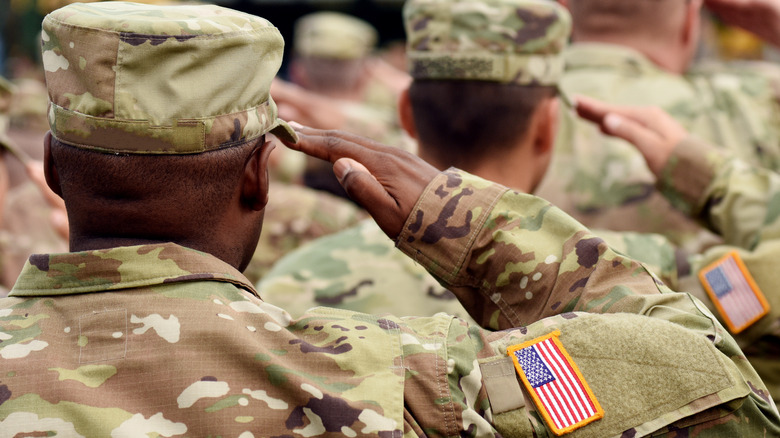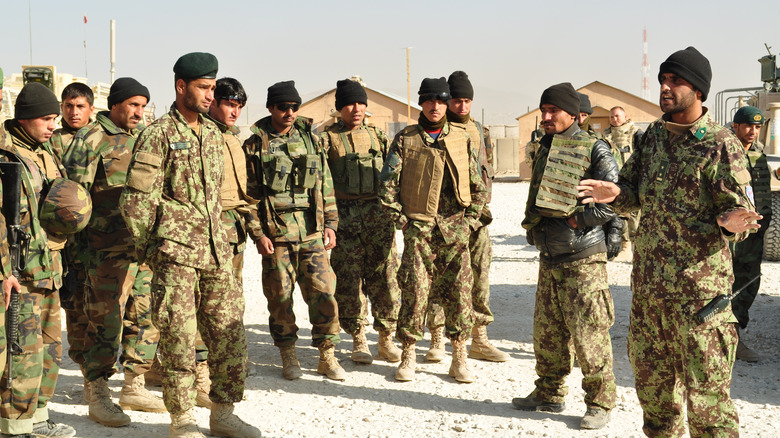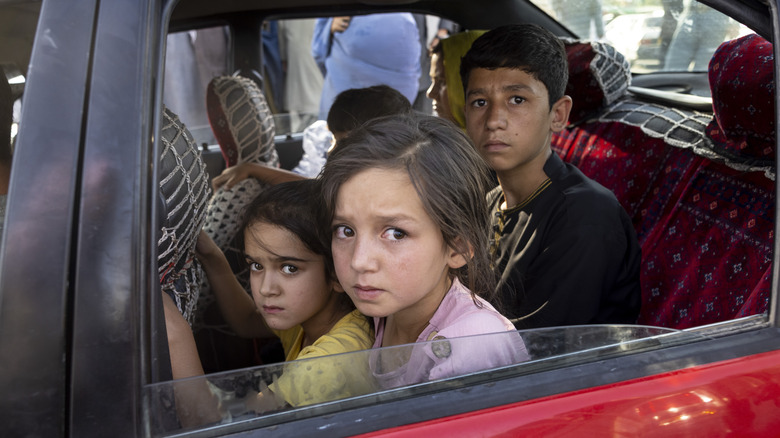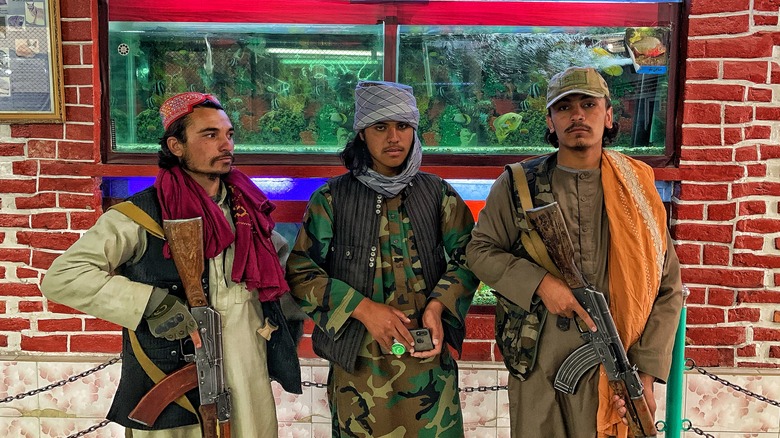Veterans Weigh In On How They Really Feel About The Afghanistan War
The U.S. was at war in Afghanistan with the Taliban for 20 years before abruptly pulling out of the country last August. It was a messy withdrawal that saw the Afghan army that the U.S. military had spent decades trying to build up essentially crumble against the Taliban forces the U.S. was working to defeat.
The U.S. initially invaded Afghanistan to look for Osama Bin Laden, the mastermind of the 9/11 attacks on the United States. After 20 years of U.S. occupation, it only took about nine days for the Taliban to take back control of Afghanistan, according to The Washington Post.
In the aftermath, Bin Laden is dead, taken out by American forces during the Obama Administration. The U.S. spent $104.5 billion in foreign aid to Afghanistan, per Global Conflict Tracker, who says that since 2009 alone there have been 111,000 civilian casualties there. According to the Associated Press, through April 2021 there were 2,448 American service members killed in Afghanistan, and 3,846 U.S. contractors.
So, was it worth it? According to a recent poll by Pew Research Center, 58% of veterans polled said the war in Afghanistan was not worth fighting, while 38% said it was worth it. Broken down by party lines, 46% of Republican vets versus 26% of Democrat vets say it was worth fighting. But troops who were actually deployed to Afghanistan during different times of the U.S. occupation have telling opinions about the way the war was handled.
It was never going to work
Five veterans spoke to Politico about what they saw during their deployments to Afghanistan. Overall, there's a sense of the futility of trying to fit a square peg in a round hole. Jason Dempsey went on three different deployments to Afghanistan as a member of the U.S. Army.
He told Politico, "... it was clear by the time I got back in 2012-13 that the entire mission was essentially — it was a failure ... We decided to mirror-image our army structure on a nation and country that simply wasn't set up for that. Instead of doing what needed to be done, we did the mission we wanted to do." The problem was, as Dempsey explained, that they were trying to set up an Afghani military like the military they knew, the American one.
"We forget the things that enable our military to exist the way it does," Dempsey told Politico. "Our military relies on a strong and legitimate central government. It relies on effective bureaucracies. It relies on lack of corruption and commitment to rule of law, the absence of sectarian division, a literate population and recruiting base. Those don't exist in Afghanistan ... We decided to ignore Afghanistan's history, culture and the reality on the ground and instead use a template of what we thought was the ideal solution."
One Marine said she doesn't like how the war ended, but said it was 'bound to happen'
Jess Gonzalez, a U.S. Marine deployed in 2011, told Politico that she is unhappy about the way the Biden administration handled the evacuations, as many Afghans who helped Americans were left behind to face whatever fate the Taliban decides for them. She said it was a "gut check" to see how the Taliban has commandeered U.S. weapons, military aircraft, and vehicles that were meant for the Afghani army they spent 20 years training. She also said she grieves for the loss of military personnel who were killed in a bombing at a Kabul airport while trying to help evacuate people, and hopes they "didn't die in vain." Gonzalez said, "In the end, this really feels like it was bound to happen from the get-go 20 years ago."
Dempsey told Politico, "What we miss is that the Taliban are actually playing the long-term political game ... We may not like it, but they're damn effective. And they're much more effective, unfortunately, than a force that we prop up to be tactically efficient in our image, but politically illegitimate and unable to win the battle for hearts and minds in a lot of these villages that are on the edge."
'They kept fighting'
Ian Fritz, who served in the U.S. Air Force, wrote a piece for The Atlantic about how he spent 600 hours eavesdropping on the Taliban as part of his job to warn allied forces of the Taliban's plans, and realized something similar about how the Taliban plays the long-game. He said they were masters of the pep-talk, always remaining positive even in the face of fatal casualties and Americans taking territory.
They celebrated even their smallest victories as proof that they were on the right side of things and would prevail. According to Fritz, the sheer persistence of the Taliban never seemed to wane, and as another veteran, Phil Caruso, told Politico about getting rid of the Taliban and making continued improvements in the lives of Afghan people, "I don't think it was sustainable without a long-term commitment, one that I don't think would be viable."
But the Taliban was at home, and they were fully committed for as long as it took. Fritz wrote in The Atlantic, "Because when it was too cold to jihad, that IED still got planted. When they had 30-year-old AK-47s and we had $100 million war planes, they kept fighting. When we left a village, they took it back. No matter what we did, where we went, or how many of them we killed, they came back."
The way Fritz explained it, "they told me what so many others refused to hear, but what I finally understood: 'Afghanistan is ours.'"



